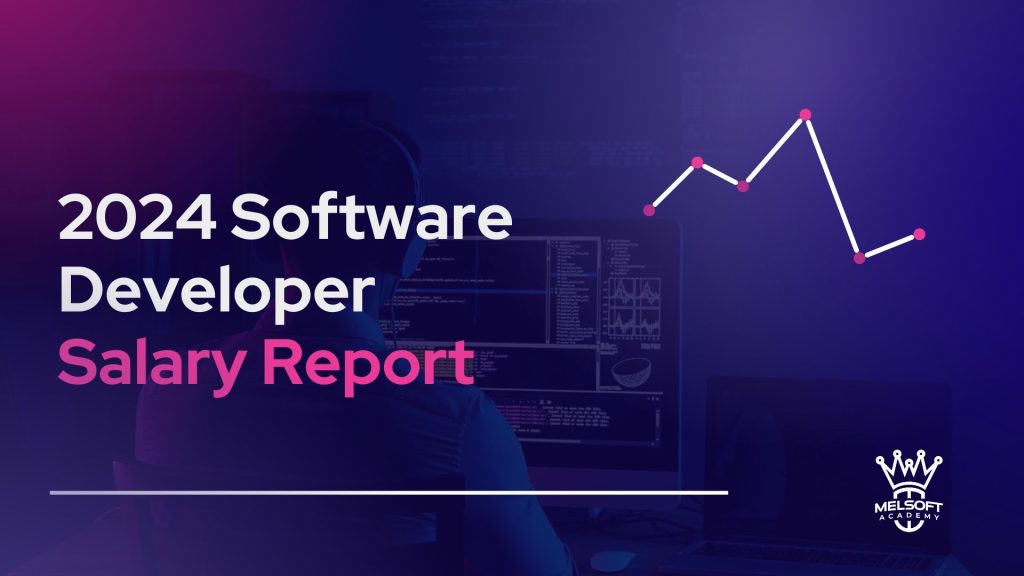The landscape of software development in South Africa is constantly evolving, and 2024 has brought some significant changes, particularly in terms of salary trends. Understanding these trends is crucial for both employers looking to attract top talent and developers seeking competitive compensation. In this blog post, we’ll delve into the latest data on software developer salaries in South Africa, highlighting key factors such as experience, location, industry, and skillsets.
Senior Developers Are More Expensive in 2024
Despite the cooling down of the global tech market, hiring senior developers in South Africa has not become any cheaper. In fact, senior developers with at least six years of experience now earn an average monthly salary of R67,863, marking a 3% increase from the previous year. Developers with over a decade of experience have seen a more substantial rise, with their average salaries reaching R93,986, up 6.3% from the last year. This indicates that while the market has slowed, the demand for experienced professionals remains high.
Annual Salary Growth Has Fallen Since 2022
One of the most notable trends is the deceleration of salary growth. In 2022, developers with six years of experience experienced a significant salary increase of 14.4%. However, between 2023 and 2024, this growth has slowed to just 3%. Similarly, while the salaries for those with over ten years of experience have remained relatively stable over the past year, they have not seen the same robust increases as in previous years. This slowdown reflects the broader economic challenges and the shifting dynamics of the tech job market.
Salaries in Gauteng Are Catching Up with Cape Town
Geographical location plays a crucial role in salary expectations. Historically, Cape Town has commanded higher salaries due to its higher cost of living. However, salaries in Gauteng are starting to catch up. This trend is beneficial for employers hiring outside of major tech hubs, as they can offer competitive salaries that are still more budget-friendly. For developers, this means that opportunities in Gauteng are becoming increasingly attractive without the need to relocate to Cape Town.
FinTech and Consulting Pay the Highest Average Salaries
Certain industries continue to pay a premium for software development talent. Developers working in FinTech and Consulting sectors command the highest average salaries. These industries often include large enterprises and multinational firms that have the resources to offer competitive compensation. For senior developers with more than ten years of experience, these sectors provide lucrative opportunities. On the other hand, sectors like SaaS and Cloud, while still competitive, do not match the high salaries offered in FinTech and Consulting.
Specialist Skillsets Earn More Than Generalist Ones
When it comes to specific roles, backend developers are the most expensive to hire, costing on average 15% more than full stack developers and 25% more than frontend developers. The gap between full stack and frontend developers has narrowed, primarily due to stagnation in full stack developer salaries over the past year. This makes full stack developers a more affordable option for employers seeking a combination of backend and frontend skills.
Go, Ruby, and Kotlin Developers Have the Highest-Paying Skillsets
The demand for certain programming languages continues to influence salary trends. Go, Ruby, and Kotlin developers earn the highest average salaries in South Africa. These languages have gained popularity in the local tech ecosystem, but finding experienced developers proficient in these languages remains a challenge. Consequently, companies are willing to pay a premium for developers with these skillsets. Ruby, in particular, remains a niche skill in 2024, further driving up salaries for proficient developers.
Spring Boot and Spring Are the Best-Paying Frameworks for Senior Developers
Frameworks also play a significant role in determining salaries. For Java developers, experience with frameworks like Spring and Spring Boot leads to higher average salaries throughout their careers. Similarly, JavaScript developers can enhance their earning potential by gaining proficiency in widely-used frameworks such as React and Node.js. These frameworks are in high demand, and developers skilled in these areas are compensated accordingly.
AWS Is Still the Best-Paying Cloud Skill in 2024
Cloud computing skills continue to be in demand, with AWS knowledge leading the pack in terms of salaries. Developers proficient in AWS earn the highest average salaries among South African cloud platforms. However, it’s worth noting that salaries for AWS developers with less than ten years of experience have stagnated. In contrast, Google Cloud developers have seen their salaries increase for those with more than two years of experience. This shift highlights the evolving landscape of cloud platform preferences and the corresponding impact on salaries.
The Impact of Industry and Company Size
The industry and size of the company also significantly impact salary trends. Larger enterprises and multinational firms typically offer higher salaries compared to smaller companies and startups. These organizations have the financial resources to attract and retain top talent, often providing additional benefits such as bonuses and comprehensive training budgets. For developers, this means that working for a larger company can be more financially rewarding, though it may come with different challenges and expectations compared to smaller firms.
Gender Pay Gap Narrows in 2024
A positive trend in 2024 is the narrowing of the gender pay gap within the tech industry. While disparities still exist, the gap has decreased, reflecting a growing awareness and effort to promote equality in compensation. This progress is crucial for fostering a more inclusive and diverse tech community. Employers are increasingly recognizing the value of diverse teams and are taking steps to ensure fair compensation practices across the board.
Remote Work and Its Influence on Salaries
The shift towards hybrid and remote work policies has also influenced salary trends. Over the past 12 months, 17% of developers lost their fully remote status, despite many expressing a preference for remote work. Companies are leveraging this shift to regain control in a competitive job market. However, developers working for fully remote companies enjoy significant flexibility, often with the freedom to work from anywhere in the world. This trend is particularly beneficial for developers looking to balance work and personal life without compromising on salary.
Conclusion
In conclusion, the software developer salary landscape in South Africa is shaped by a myriad of factors, including experience, location, industry, and specific skillsets. Despite a cooling market, senior developers continue to see salary increases, albeit at a slower rate than in previous years. Geographic trends indicate that Gauteng is catching up with Cape Town, offering more competitive salaries. Industries like FinTech and Consulting remain lucrative, while specialist skillsets command higher compensation.
Frameworks and cloud skills also play a crucial role in salary determination, with AWS and frameworks like Spring and Spring Boot leading the way. The narrowing gender pay gap and the evolving remote work policies further influence the salary trends in 2024. For both employers and developers, staying informed about these trends is essential for navigating the competitive landscape of software development in South Africa.
By understanding and adapting to these trends, employers can attract top talent while developers can make informed decisions about their career paths. As the industry continues to evolve, staying ahead of these trends will be key to success in the South African tech market.
For more detailed insights and data on software developer salaries in South Africa, you can refer to the 2024 South Africa Report: State of the Software Developer Nation by OfferZen.


